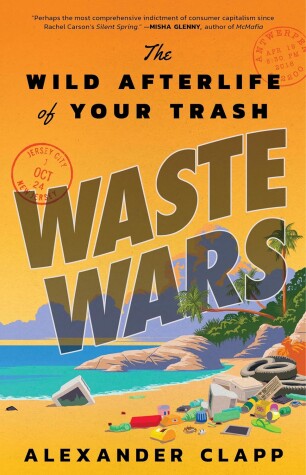Anti-Western Ideology And Dearth Of Bibliography Mar Otherwise Solid Enough Examination Of The Topic. This is one of those books that has a lot of great information... and then doesn't really document where that information came from. Clearly, Clapp traveled extensively and did a lot of first hand observations - which is clear from the narrative. And yet there is also quite a bit of discussion of histories old enough (yet still modern enough) that Clapp could not possibly have conducted such interviews himself, such as one comment from a letter from an activist in 1992 Guatemala regarding the trade in trash being more lucrative at the time than the drug trade! Thus, there is enough that wasn't directly observed that the bibliography should have been longer than the 13% the Advance Review Copy form of this book I read a few months before publication had. Still, that was only call it a half star deduction, as 13% is really close to the 15% that I'm trying to relax my standard to (from 20-30%).
The other half star deduction is from the explicit and pervasive anti-Western commentary - at one point going so far as to claim that "Indigenous societies were in greater touch with Earth's natural rhythms than white settlers. They had a more profound sense of moral purpose." While this statement was perhaps the single worst in the narrative, there were numerous similar comments spread throughout the entirety of the text, enough that some may wish to defenestrate this book early and often.
But don't. Read the book. There really is quite a bit here, and while some of it is included in other works on the trash trade and trash life cycle - such as Year Of No Garbage by Eve Schaub, Worn Out by Alyssa Hardy, and Wasteland by Oliver Franklin-Wallis - Clapp manages to go to other areas (such as Indonesia) not covered in these other works and show their own problems and opportunities in stark clarity. Indeed, remove the blatant anti-Western bias, and this is truly a solid work in the field, showing a wide breadth of the overall problem of the life of trash after it is thrown away and now nothing ever really solves this particular problem... in part due to the classic peril of there being too much money to be made by *not* solving it.
So read this book. Maybe you agree with the author's biases, maybe you're vehemently opposed to them. Either way, I'm almost 100% certain that even if you happen to be an actual expert in the global trash trade... you're *still* going to learn something from having read this book.
Recommended.
